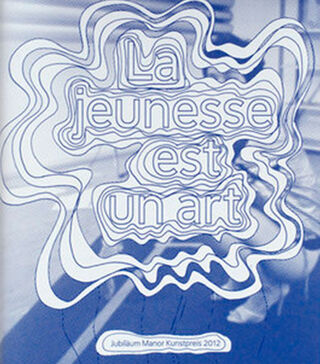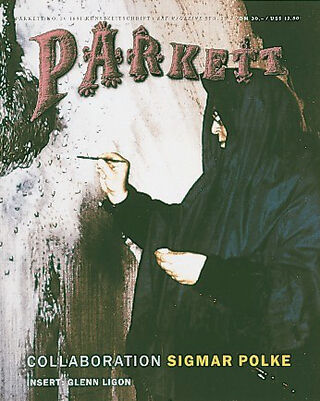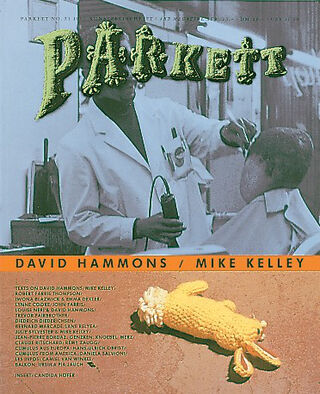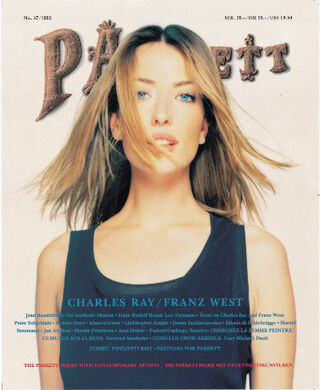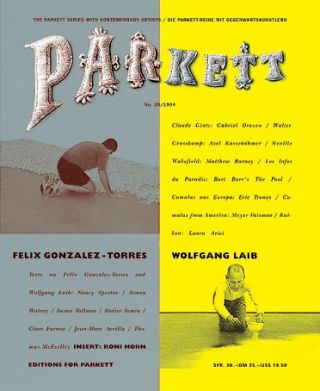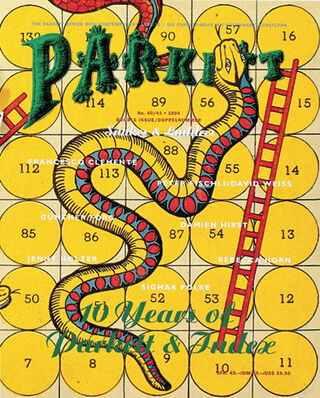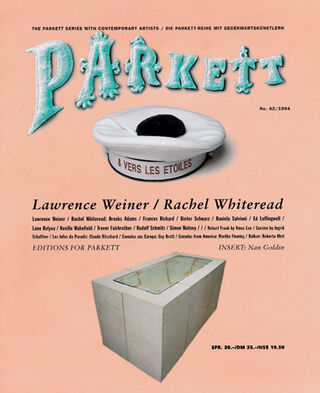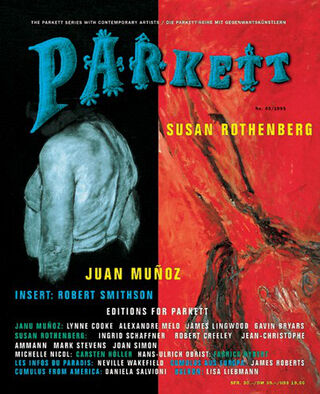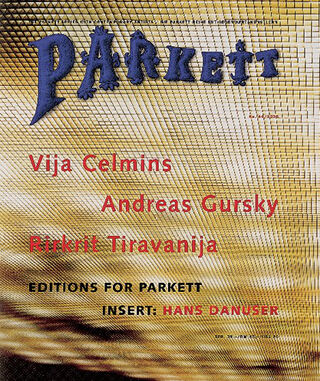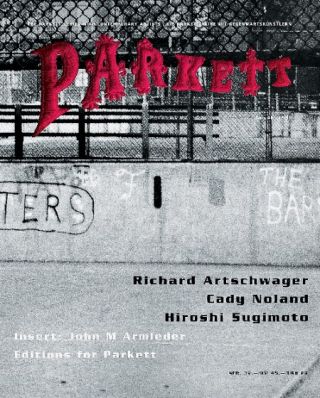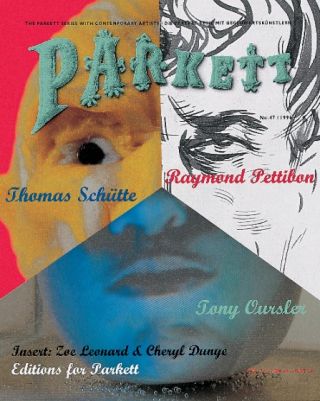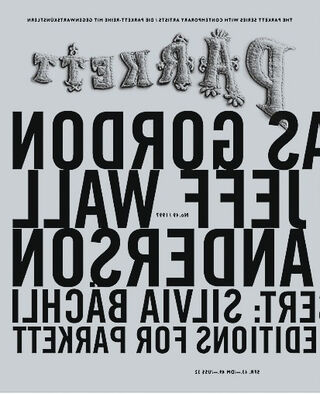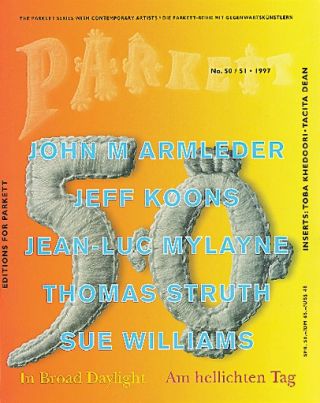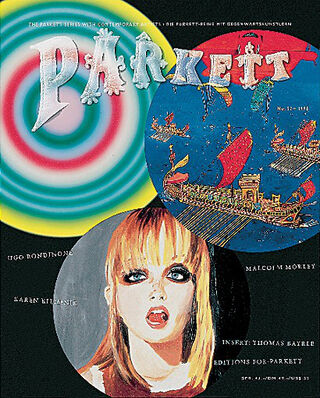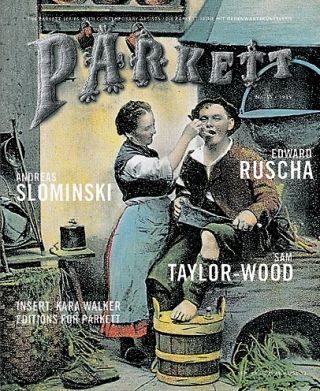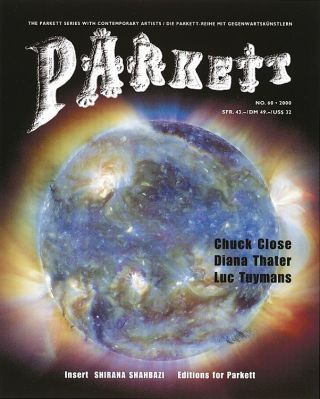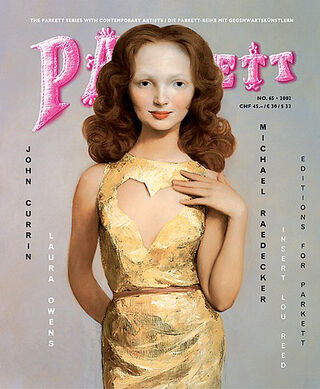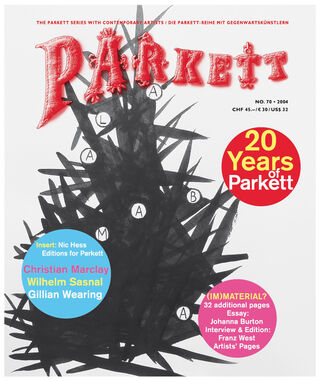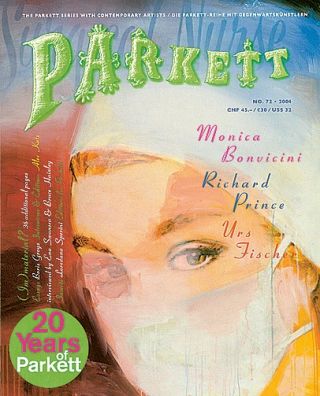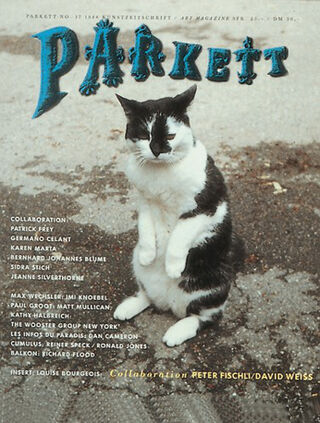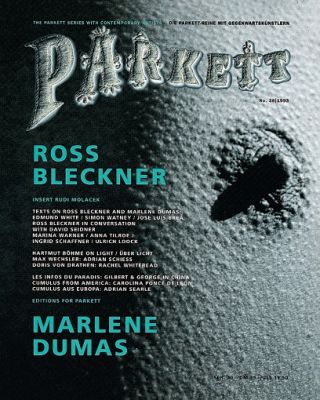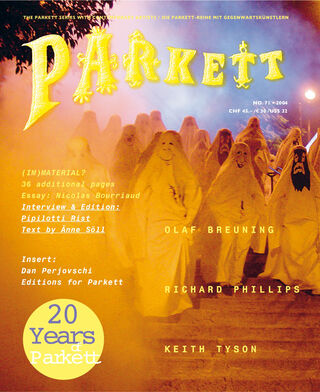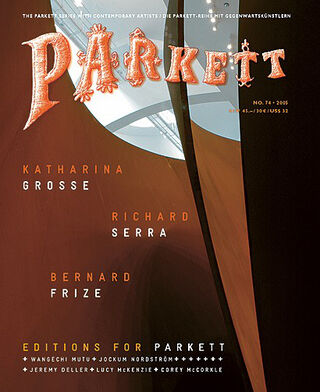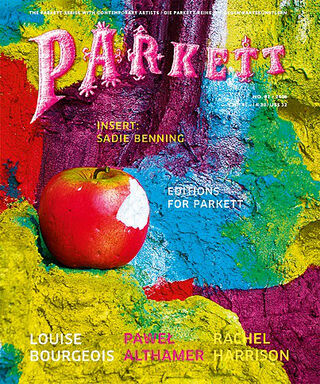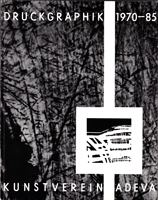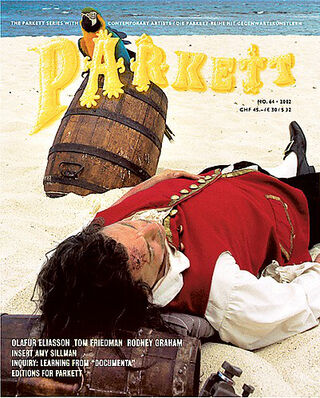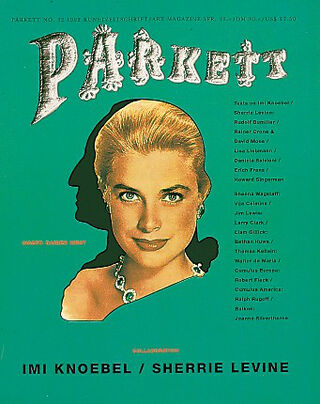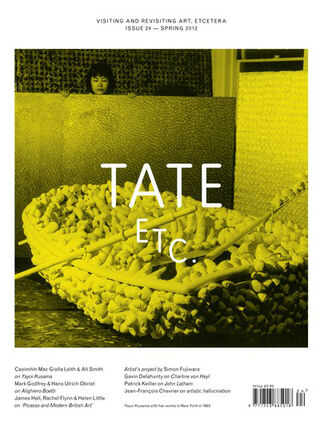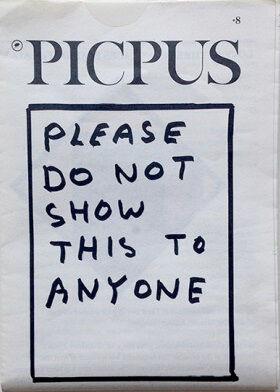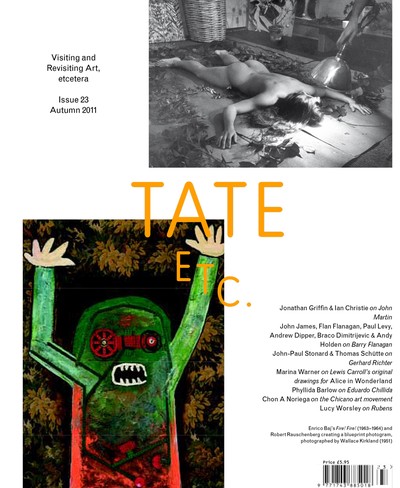
Magazine, English, Glue Binding, 112 Pages, 2011
Tate Etc. - Issue 23 / Autumn 2011
availability unknown, if interested please write an email
This autumn Tate St Ives stages a group exhibition called The Indiscipline of Painting: International abstraction from the 1960s to now. It includes work by Mary Heilmann, who calls it a ‘huge conversation’ with some of her favourite artists. ‘This is the way I love to engage with art,’ she says.
Such conversations are at the heart of Tate Etc., and often these start with the Tate collection. For his show at Nottingham Contemporary, the artist Klaus Weber has chosen an eclectic and rarely seen selection of Tate works, including pieces by Paul Neagu, George Fullard and Enrico Baj’s Fire! Fire! . Weber made his choice after many hours on Tate’s website – a process that he described as a ‘fantastic voyage’.It is always fascinating to know how and why one artist is inspired by another. Here, Thomas Schütte recounts how his former teacher Gerhard Richter has been the ‘main influence’ on his methodology, and how he learned from him that ‘even with a limited field you can create a rich story with one’s work’.Of course, such inspirations often reach across the centuries. Many artists and filmmakers have borrowed from the apocalyptic visions of the nineteenth-century painter John Martin, and, as Jonathan Griffin argues, Martin’s art could be seen as the source of the ‘dystopic vastness’ in the work of Edward Burtynsky, Florian Maier-Aichen and others, as well as a forerunner of the penchant for the post-apocalyptic undertones in the ‘total installation’ environments of Christoph Büchel and Gregor Schneider.Writers have also provided rich material for artists to work from. As Tate Liverpool’s Alice in Wonderland exhibition will show, Lewis Carroll’s works have had an enormous impact on artists from the 1960s onwards, such as Mel Bochner and Bruce Nauman, who, as Sam Thorne writes, have been ‘captivated by both the material potential of text and its endless ambiguities’. Language: English

